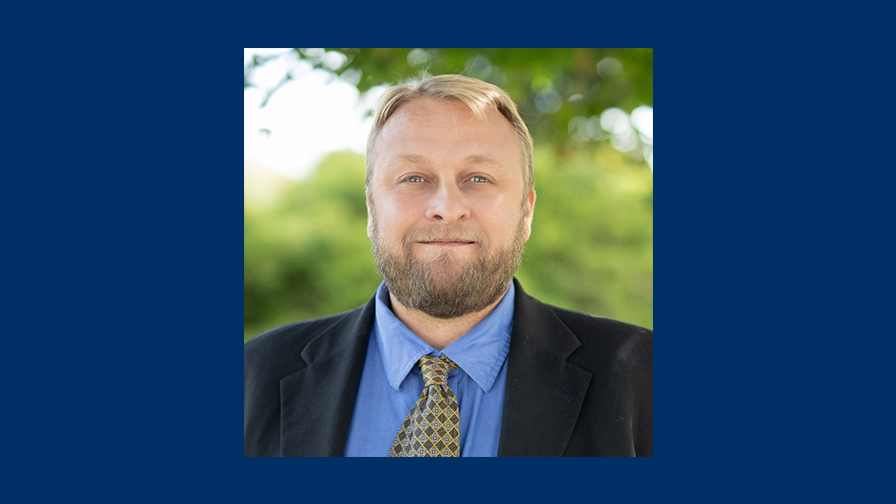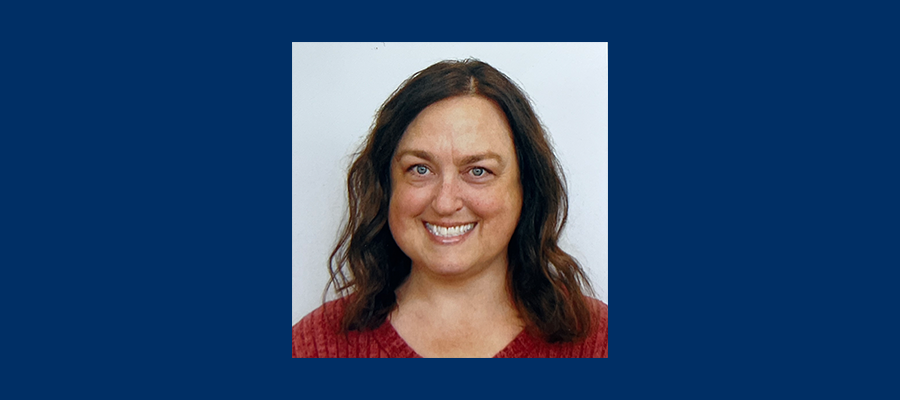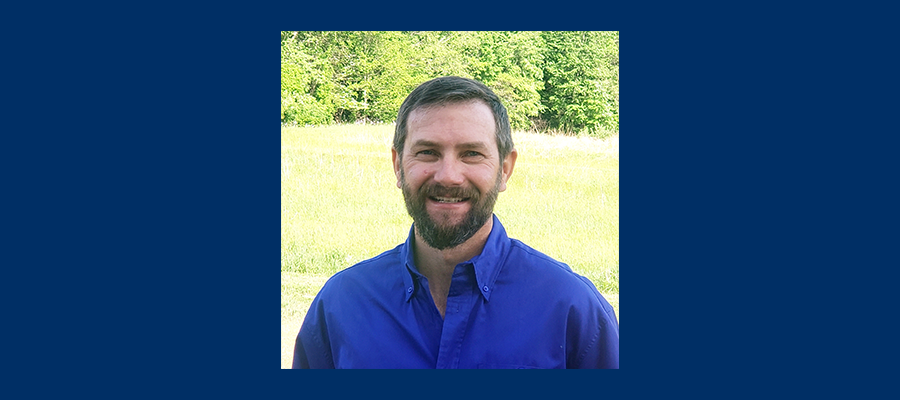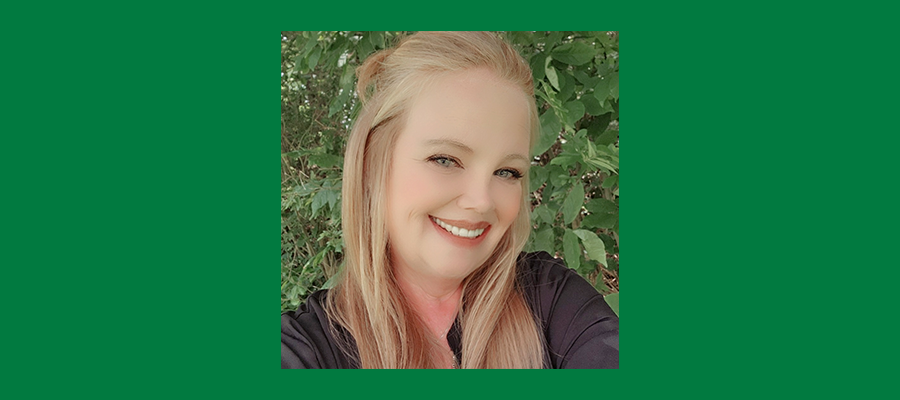Professional Profile: Troy Ross

I graduated from Hocking College in Southeast Ohio with a Ranger Services and Fish and Wildlife degree in 1998. I went to school thinking I wanted to work as a forest ranger. After I went through ranger police officer training, I decided that path was not for me. I was at a crossroads, unsure of what I was going to do with my life. A classmate of mine told me about a job they had gotten with ACRT — they said they loved it. They were able to use skills they had learned at school and worked outside every day. A week later, I packed up everything I owned and moved to Tennessee to work with ACRT on Southwest Tennessee Electric Membership Corporation, and worked for a year as a utility forester. I really fell in love with the work and the industry. From there, I dedicated my life’s work to ACRT and the UVM industry.
Upon entering the UVM industry, I did not expect much of it at first. I really did not think of it as an “industry” when I first started. It seemed like I was working a niche job for a small utility. As my career expanded, I started seeing more and more utilities, changing my viewpoint. Working across the country with the UAA and other organizations, I have seen a group of like-minded, hardworking, intelligent, and passionate people. These people are leading the way in safety, environmental stewardship, efficient operations, and reliability across the world.
I steadily worked my way into leadership positions and worked with more and more utilities. I was the operations manager of Tennessee and Virginia, director of all operations outside of California, and vice president of all operations. In 2016, I was asked to move to Ohio to work out of our organization’s home office. I left Tennessee after 18 years and became president of ACRT. In 2018, I moved into ACRT Services, our parent company, and became the executive vice president of operations. In this role, I started overseeing all operating companies. This gave me a chance to work in several different industries. In October of 2022, I was promoted to COO of ACRT Services and now oversee all operating functions of the organization.
I was drawn to UVM for a job, but I found a career. In the beginning, it was my innate love of the outdoors and variety in the job. It grew into a passion for helping utilities aid their communities. Tongue-in-cheek, I like to say, “We are saving the world one tree at a time.” When you think about how interconnected we are, the heartbeat of our society is electricity, and UVM is all about safe and reliable electricity at the lowest possible cost. The quote rings true. Our industry’s workers are those hometown heroes who help society function and thrive.
Of all the aspects of UVM, I enjoy helping people the most. I truly believe that working in UVM is an act of service to our communities. I also enjoy the teamwork that must happen to meet our industry’s goals. Utilities, their vendors, and consultants must work together to accomplish a large task, year after year, while managing a dynamic system that throws more and more variables at you.
I wouldn’t be able to help communities if I didn’t have mentors who helped me first. It’s difficult to narrow down who guided me to where I am today because there have been so many — I am scared to leave someone out. I believe who we are is a tapestry of the people we have met and learned from. Early in my career, it was Mark Falcon. He was my first manager and I learned about this industry from him. I also adopted his passion for ACRT and UVM. As my career progressed, it had been Mike Weidner. He helped guide me from being a utility forester to a businessman. He also supported me in continuing my education with a Bachelor of Science in organizational leadership and a Master of Business Administration. Outside of our organization, I have taken inspiration from the UAA as well as many of my customers. Glenn Springer, John Laselva, and Ken Kinsey are a few customers who have helped hone my management skills. Mike Neal and Randy Miller were both on the ACRT Services Board of Directors, where I got to see their leadership qualities on display. At the UAA, when I was a director, Phil Charlton, Paul Hurysz, Will Nutter, and Craig Kelly’s passion for the industry was contagious. While at the UAA, I championed the Editorial Committee. My chair on the committee at the time was Nelsen Money. I loved watching Nelsen’s passion for the Newsline, UAA, and industry education on display.
Currently, I am working on an integration of a new company that ACRT Services has acquired. It is an environmental company called EnviroScience. Utility vegetation management is an environmental industry. Over the years, I have seen the march to environmental sustainability, IVM, pollinator habitat, and now corporate ESG. The merging of this new company’s services and our organization will help us better prepare to lead and support all of the changes. Personally, it will help me have a better understanding of the shift, allowing me to be a better consultant.
There are three big things that I have seen change in the industry throughout my career: technology, safety, and environmental stewardship. When I started, I was given electrical maps that were blue carbon copies. I had a pager and carried quarters to use pay phones to contact my tree crews. All work was planned and completed on paper. This was in 1999. Today, we have electronic everything—instantaneous communication, planes with laser beams, satellites, and robust integrated data platforms. Technology is going to be the biggest driver of our industry in the future. The UVM of today will not be the UVM of tomorrow.
Safety and environmental sustainability followed a similar path. When I first started consulting with utilities, they would tell me that they left safety to their contractors and expected them to follow the law. I always felt like environmental concerns were seen as a burden to be avoided. Today, utilities are driving safety and environmental sustainability. They are core values of the industry. I see more passion around these topics than any others. I think this is only going to continue, and our industry and workers are going to be better off because of it.
My final thought on how I see our industry succeeding, besides embracing technology, safety, and environmental stewardship, is through people. This industry is only as good as the people who are in it. We must drive for more education, more outreach, and more training for our future leaders. We need to look at the people who work in the industry, such as trimmers, climbers, foresters, arborists, as professionals. They need to be paid like they are professionals. We need to create strong partnerships that drive longevity, not a race to the bottom dollar. Our industry sees a massive brain drain every year as people leave to find their fortunes somewhere else. We must also embrace change. The dynamics of the world have to speed up. The pace of change is faster now than ever before. We must embrace this, lean into it, and do what we do best: save the world, one tree at a time.
This article was originally published by the Utility Arborist Newsline, March/April 2023
Related Articles

Celebrating 20 Years of Leadership: Honoring Renee Bissett This May, we are proud to celebrate a special milestone, Renee Bissett’s 20th anniversary with ACRT Services. Over the past two decades, Renee has contributed immensely to our organization’s growth, culture, and community, becoming an inspiring example of dedication. A Journey of Growth and Impact Renee joined[...]
Read More
ACRT Services Business Development Manager: This Industry Chose Me Ryan Meccage is a graduate of Montana State University with a major in Rangeland Science. When he moved to Pennsylvania with his wife in 2019, he wasn’t sure how his experience in rangeland vegetation management would apply since there aren’t large rangelands in the eastern U.S.[...]
Read More
Joanne Pem Elected to ACRT Services Board of Directors ACRT Services is pleased to announce the election of Joanne Pem, assistant project manager in the marine services division at EnviroScience, to the ACRT Services Board of Directors. Since joining EnviroScience in 2013, Pem has excelled in project management and has played a critical role in[...]
Read More
Saluting Branches Names Renee Bissett as New President Saluting Branches, a non-profit organization that honors American service men and women by organizing volunteer tree and landscape care for the property dedicated to veterans, is proud to announce Renee Bissett as its new president. With a distinguished career spanning over two decades in the utility industry,[...]
Read MoreRecent Posts
- ACRT Services Names Brad Dawson as Head of Sales 05th Jun 2025
- ACRT Services Welcomes Mark Green to Sales Team 05th Jun 2025
- Celebrating 20 Years of Leadership: Honoring Renee Bissett 05th May 2025
Categories
| M | T | W | T | F | S | S |
|---|---|---|---|---|---|---|
| 1 | 2 | 3 | 4 | 5 | 6 | |
| 7 | 8 | 9 | 10 | 11 | 12 | 13 |
| 14 | 15 | 16 | 17 | 18 | 19 | 20 |
| 21 | 22 | 23 | 24 | 25 | 26 | 27 |
| 28 | 29 | 30 | 31 | |||